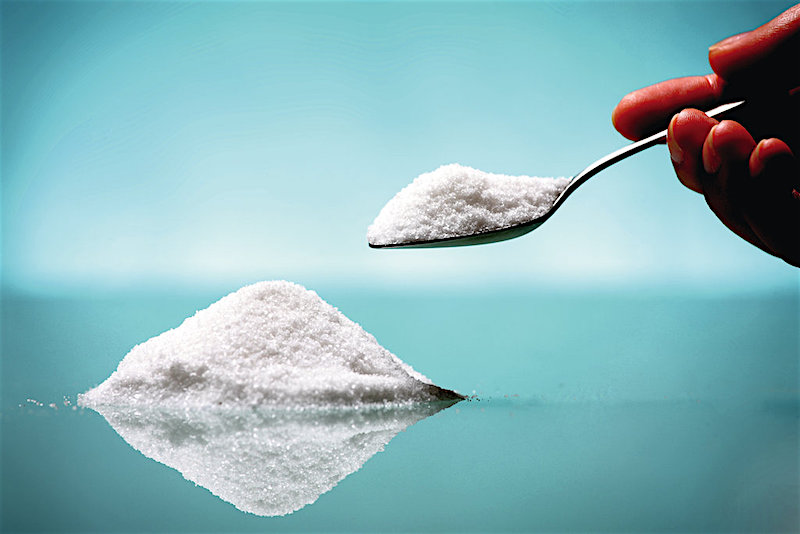 A newly published study is adding to growing concerns over the use of titanium dioxide as a common food additive. Researchers from the The International Agency for Research on Cancer (IARC) have shown that titanium dioxide crosses the intestinal barrier in animals to reach other parts of the body. They also linked immune system disorders to absorption of titanium dioxide nanoparticles.
A newly published study is adding to growing concerns over the use of titanium dioxide as a common food additive. Researchers from the The International Agency for Research on Cancer (IARC) have shown that titanium dioxide crosses the intestinal barrier in animals to reach other parts of the body. They also linked immune system disorders to absorption of titanium dioxide nanoparticles.
Titanium dioxide (TiO2) is used in a wide variety of consumer products, including cosmetics, sunscreens, paints and building materials. The focus of this study was use of Titanium dioxide in the food industry. Titanium dioxide is commonly found in sweets, chocolate products, cookies, chewing gum and food supplements, as well as in toothpaste and pharmaceutical products. Composed of micro- and nanoparticles, the food additive is not labeled as a “nanomaterial,” since it does not contain more than 50% of nanoparticles.
The International Agency for Research on Cancer (IARC) previously evaluated the risk of exposure to titanium dioxide by inhalation (occupational exposure), resulting in it being classified as potential carcinogens in humans.
The new study focused on oral exposure to titanium dioxide, especially in children who tend to eat a lot of sweets.
To study the effects of exposure to titanium dioxide the INRA researchers exposed rats to daily oral amounts of titanium dioxide similar to those ingested by humans through normal daily food consumption. Their study observed, for the first time, tracked titanium dioxide particles as they passed through the intestinal lining and into the bloodstream.
The researchers report that titanium dioxide particles accumulated in the animals’ livers, as well as the lining of the small intestines, the colon, and in immune cells that protect the intestines. The researchers also observed imbalanced immune responses, ranging from a defect in the production of cytokines, to inflammation of the colon mucosa. And in the spleen, representative of systemic immunity, exposure to titanium dioxide was shown to increases production of pro-inflammatory cytokines that have been linked to fevers, inflammation, tissue destruction, and, in extreme cases, shock and death.
Oral exposure to titanium dioxide linked to early stages of colorectal cancer
The researchers exposed rats to regular oral doses of titanium dioxide through drinking water for 100 days. In a group of rats previously treated with an experimental carcinogen, exposure to titanium dioxide led to an increase in the size of precancerous lesions. In a group of healthy rats, four out of eleven exposed to titanium dioxide spontaneously developed preneoplastic lesions in the intestinal lining. Non-exposed animals presented no anomalies at the end of the 100-day study. These results indicate that titanium dioxide both initiates and promotes the early stages of colorectal cancer in animals.
These studies show for the first time that nanoparticles of the food additive titanium dioxide accumulate in the intestines and the entire body, with consequences for both immune function and the development of precancerous lesions in the colon.
Source: Sarah Bettini, Elisa Boutet-Robinet, Christel Cartier, Christine Coméra, Eric Gaultier, Jacques Dupuy, Nathalie Naud, Sylviane Taché, Patrick Grysan, Solenn Reguer, Nathalie Thieriet, Matthieu Réfrégiers, Dominique Thiaudière, Jean-Pierre Cravedi, Marie Carrière, Jean-Nicolas Audinot, Fabrice H. Pierre, Laurence Guzylack-Piriou, Eric Houdeau. Food-grade TiO2 impairs intestinal and systemic immune homeostasis, initiates preneoplastic lesions and promotes aberrant crypt development in the rat colon. Scientific Reports, 2017; 7: 40373 DOI: 10.1038/srep40373














